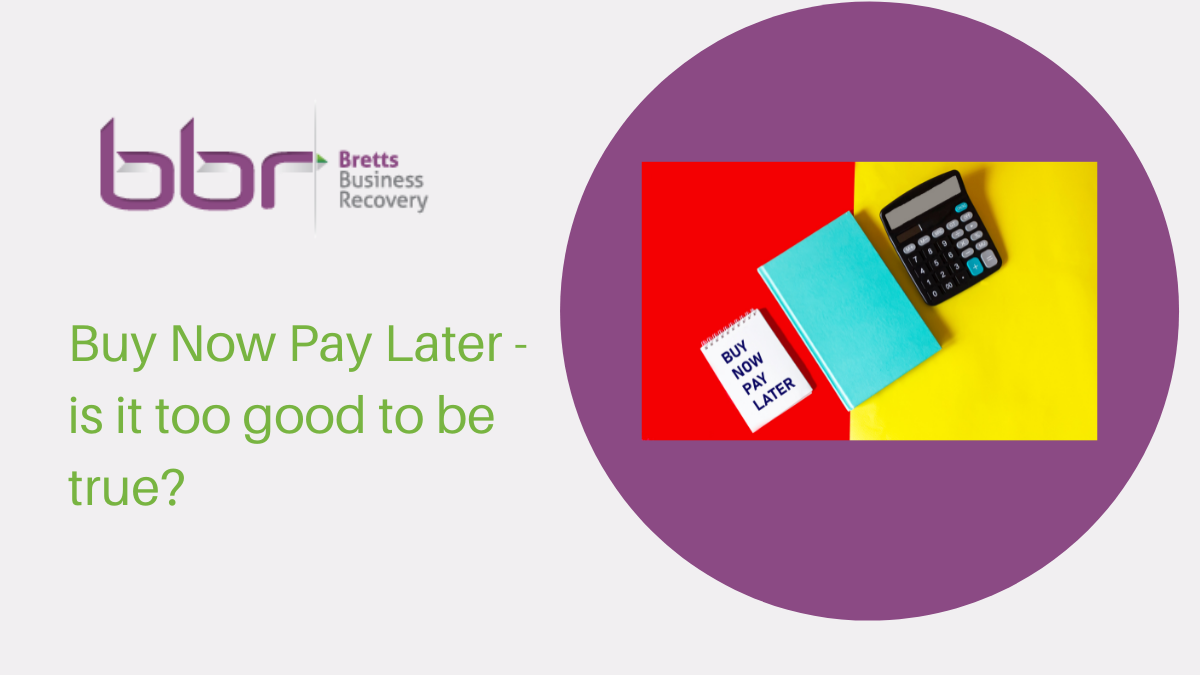Buy Now, Pay Later – too good to be true?

Are Buy Now Pay Later (BNPL) products a savvy way of managing your money and buying what you want or a way of getting you into debt?
Buy now pay later (BNPL) is a service that allows consumers to shop online and place and receive orders while paying for them later. BNPL is currently the fastest growing online payment method in the UK. According to www.finder.com BNPL has a growth rate double that of bank transfers and more than triple that of digital wallets. But is BNPL too good to be true? What are the implications of using BNPL on your credit score and is it simply exacerbating the debt problem in the UK?
What is BNPL and who are the main players?
In simple terms, BNPL companies allow consumers to delay the bill or split it into instalments. A selection of the most popular providers includes:
- Klarna
- Laybuy
- Hokodo
- Zilch
- Clearpay
- Pupledot
- Openpay
- Paypal Credit
Most of these providers offer other credit products as well as BNPL – for example Klarna has a financing option with repayments spread out over 6 months to 3 years. These providers offer differing services but on the whole their delayed payments or pay in 3 or 4 instalment products are interest free so are not currently regulated by the FCA.
Earlier this year the FCA published its in depth review into BNPL (the Woolard Review) and other unsecured credit products. It called for BNPL products to be brought under FCA regulation as soon as possible. Other recommendations included:
- ensuring a healthy credit market is underpinned by good debt advice services
- ensuring there is a sustained regulatory response to coronavirus (Covid-19) including through more prescriptive approach to forbearance
- encouraging the growth of alternatives to high cost credit
- building a better credit information market
- ensuring that a healthy, sustainable credit market is built on regulation that focusses on good outcomes across the lifetime of a product
Clearpay, Klarna, Laybuy and Openpay have been working alongside the FCA to make their services and their terms of use more transparent ahead of official regulation.
Is BNPL too good to be true?
For the most part BNPL offers delayed or instalment payments which are interest free, so consumers are not stung with the same high-interest repayment rates as they might with credit cards or finance agreements. BNLP is offered on low value items so more products are accessible to more people and if they order something which they subsequently return and they are using a delay-payment option they can do so without any money actually leaving their account. BNPL products have given younger generations more access to credit as these brands are marketing directly to that demographic – with 54% of millennials saying they are active users of BNPL products ( source www.finders.com)
If this all sounds too good to be true, that’s probably because it is! A recent report from www.money.co.uk suggests that 1 in 10 BNPL users are being chased by debt collectors and over £39 million is currently owed in late payment fees. Many BNPL companies have been criticised for not carrying out stringent credit checks and affordability assessments meaning that consumers have managed to use several different providers concurrently, getting themselves further and further into debt.
Research from the FCA also revealed that many consumers don’t view interest-free BNPL as a form of credit. This means consumers don’t use the same level of scrutiny when shopping online as they might when taking out a loan or using a credit card. The fact that the schemes are interest-free, and are fast and easy to sign up to, could therefore be misleading customers and enticing them to spend more than they can afford.
BNPL works out well if you make all your payments on time. However, the arrangement goes south if you miss a payment. If that happens, you may get charged a late fee. The amount depends on the provider but could be around 25% of the initial purchase value. Late payments could also mean that the remaining balance will have interest applied – and potentially be reported on your credit file.
Should you use BNPL?
With the above in mind, it’s advisable to use BNPL products with caution. Once these products are regulated by the FCA there should be more clarity around the risks of late payments and more stringent affordability checks to avoid inappropriate lending to vulnerable customers. In the meantime, it’s important to assess whether you can afford to make the purchase now or in the future and budget accordingly. Use of BNPL products could have a negative impact on your credit score and your future ability to apply for a mortgage or business loan.
As always, if you need advice on personal or business-related debt problems, seek help from a professional advisor sooner rather than later – this means you’ll have access to more options.
The team at BBR offer a free 30 minute consultation if you need initial support and advice on the best way forward.
Contact Us